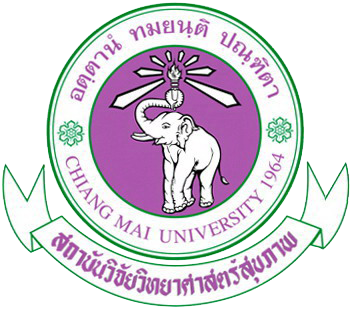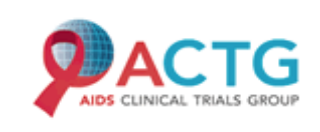Study name : A Phase IV, Prospective, Randomized, Open-Label Evaluation Of The Efficacy Of Once-Daily Protease Inhibitor And Once-Daily Non-Nucleoside Reverse Transcriptase Inhibitor-Containing Therapy Combinations For Initial Treatment Of HIV-1 Infected Individuals Form Resource-Limited Settings (PEARLS) Trial
Project code : A5175
Principle investigator : Professor Khuanchai Supparatpinyo, MD
Collaborators : ACTG network
Funding agency : The National Institute of Allergy and Infectious Disease and Pharmaceutical Support by Boehringer Ingelheim Pharmaceuticals, Inc., Bristol-Myers Squibb, Inc., Gilead Sciences, Inc., GlaxoSmithKline
Study sites :
(U.S):
University of Washington
Johns Hopkins University
Vanderbilt University
Cornell Clinical Trials Unit.
Columbia University
University of Colorado
The Miriam Hospital, Brown University
University of North Carolina
University of California, San Francisco
University of California Los Angeles
(Non-U.S) :
Rio de Janeiro, Brazil
Porto Alegre, Brazil
Port-au-Prince, Haiti
Chennai, India
Pune, India
Blantyre, Malawi
Lilongwe, Malawi
Lima, Peru
Johannesburg, South Africa
Durban, South Africa
Chiang Mai University, Chiang Mai, THAILAND
Harare, Zimbabwe
Study start : June 2005
three-Study design : phase IV, randomized, open-label,arm
Study objectives :
1. Primary Objective
To demonstrate the non-inferiority of a once-daily PI- and a once-daily NNRTI-containing regimen as compared with standard twice-daily ARV therapy for the initial treatment of individuals infected with HIV-1 from diverse areas of the world.
2. Secondary Objectives
2.1 To determine the safety of combinations of ARV therapy for the treatment of HIV-1infection and to characterize drug-associated toxicities observed in different
geographic and cultural settings.
2.2 To characterize and compare the patterns and rates of ARV drug resistance during ARV therapy in diverse areas of the world.
2.3 To examine the effects of ARV therapy on quality of life in diverse areas of the
world.
2.4 To characterize and compare the occurrence and outcomes of opportunistic
infections, viral co-infections, and immune reconstitution syndromes, observed during ARV treatment in different geographic settings.
2.5 To examine associations between nutritional deficiencies and responses to ARV therapy.
2.6 To investigate efficacy of sequential ARV regimens after failure of primary regimens in diverse areas of the world.
2.7 To evaluate the effects of concomitant medications, traditional treatments, ethnicity, race, and measures of adherence on plasma ARV concentrations in individuals from diverse areas of the world.
Progression :The site enrolled as planned 100 participants to the protocol A5175. According to the protocol team plan, the follow-up process will end by May 31, 2010. The site is preparing for post-trial referral and access to continued care from the Thai national AIDS Program for participants who complete study follow up.
Significance : The strategy of ARV treatment may be changed if once daily regimens show non-inferiority to two times a day regimen. The patients will have better compliance and more convenience with once daily regimen.




